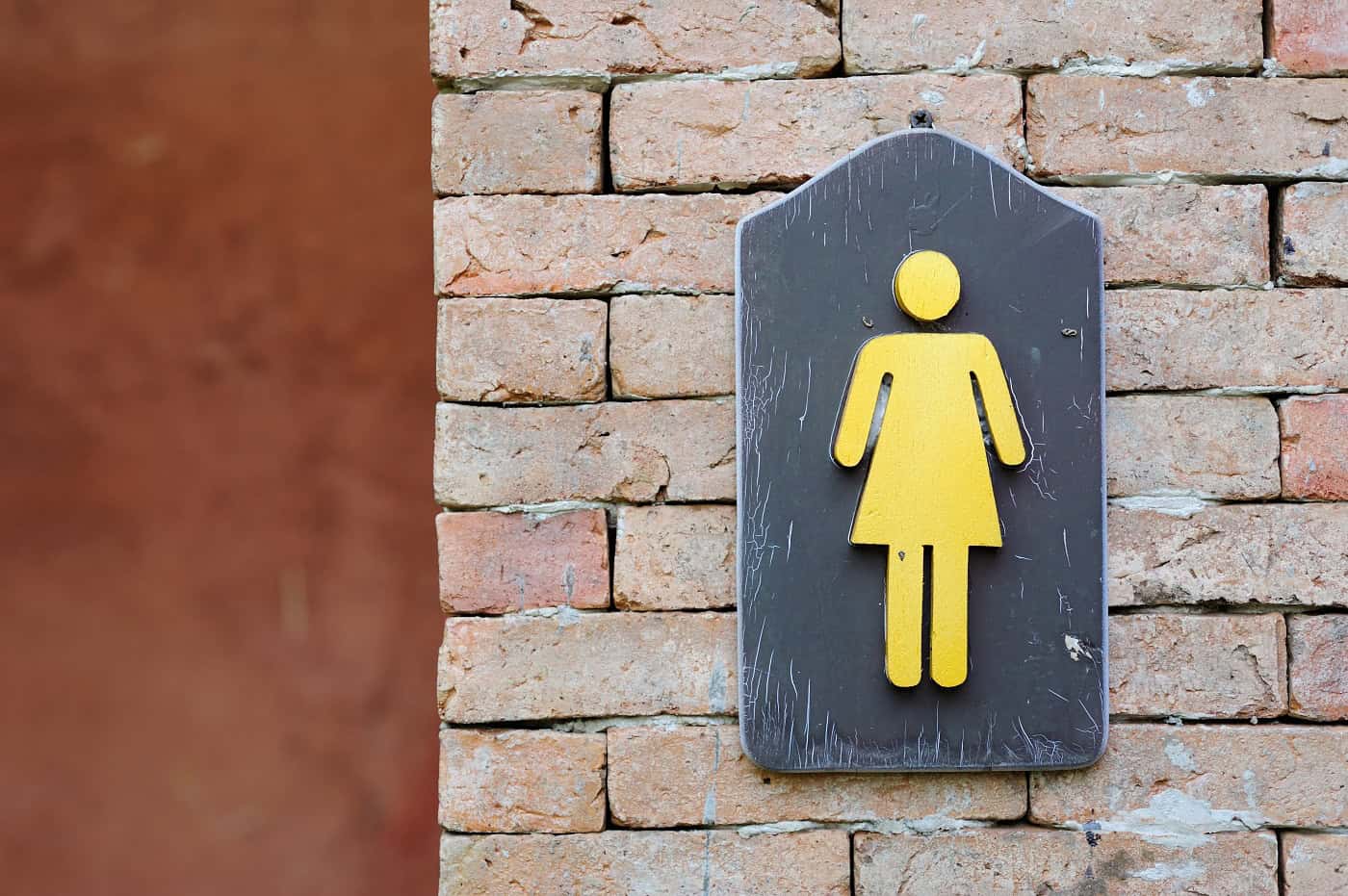
Female Urinary Incontinence
Despite it being a common condition, with an estimated 14 million people in the UK suffering from a bladder problem, urinary incontinence is still considered a taboo subject and not openly discussed enough. As a result, many people will suffer in silence and do not reach out for support or to get the help that they need.
Both women and men, of all ages, can suffer from bladder issues at any moment in their lives. In this blog, I focus solely on urinary incontinence suffered by women.
Urinary incontinence can come in many different forms:
- Stress incontinence
Involuntary leakage on effort or exertion e.g. exercising, coughing, sneezing. Mostly due to weak pelvic floor muscles from increased abdominal pressure under stress.
- Urge incontinence
Involuntary contraction of the bladder muscles. Most likely resulting from an overactive bladder or from neurological disorders. This is the sudden and intense urge to urinate.
- Urinary retention (overflow incontinence)
The bladder is unable to empty properly. There is trouble with ‘voiding’ or urinating. The bladder then gets too full which can cause a surge incontinence.
- Functional incontinence
Loss of control and involuntary leakage. Associated with cognitive, mobility or functional difficulties that impair the ability to use the toilet but without any failure of the bladder’s capacity for storage and emptying.
Within our Women’s Health team and because of the work we do, we see too often many of our female clients who have received substandard medical treatment and as a result have been left with avoidable injuries including urinary incontinence.
Urinary incontinence is debilitating and can have a huge impact on quality of life. It is something that is not openly discussed due to embarrassment. However, here at BBK we want to open up the discussion to normalise this condition so that those suffering can feel better able to seek the support and the advice they need.
Of course, there are many non-negligent reasons why women might suffer urinary incontinence but here we share our experiences of instances where medical negligence can arise and result in compensation for this debilitating condition.
Potential medical negligence
- Surgical errors
Damage to the bladder or the urethra can occur during pelvic or abdominal surgery. Sometimes you may see the risks of bladder damage being listed on your consent form as a recognised complication of the surgery. However, that doesn’t always mean that the materialisation of that risk is not negligent. Negligent injuries can occur during surgery where there is an error made by the surgeon(s) that falls below the standard of care to be expected. This can involve damage caused by technical incompetency of the surgeon or standard surgical practices not being followed correctly, for example.
Many surgical errors involving damage to the bladder are not identified at the time of the surgery and should have been, either immediately or in the immediate aftermath post-surgery. Successful medical negligence claims can involve there being identifiable signs that an injury has occurred that are unreasonably missed which result in further complications and harm.
Injuries that are detected after surgery tend to be more complex, require more difficult repairs and result in more complications than those detected and repaired during the surgery.
- Urinary retention
Urinary retention can be a recognised side-effect after any surgery following general anaesthetic or where a catheter has been placed. Negligent treatment can occur when clinicians fail to ensure that a patient’s bladder is working properly before discharging them from hospital.
Patients can suffer serious long term bladder damage if urinary retention is left untreated. If retention occurs and is identified, catheterisation is required as soon as possible to drain the bladder of retained urine. There needs to be clear, concise and regularly maintained fluid input/output charts kept and if the condition continues then further investigations are required including bladder scans.
- Vesico-vaginal fistula
A vesico-vaginal fistula is an abnormal connection (a hole) between your bladder and vagina which allows the continuous leak of urine through the vagina. This can occur when there is an undiagnosed bladder injury which results in tissue breakdown and a hole is formed. The earlier the bladder injury is detected the less likely the formation of the fistula. The fistula will require surgical repair to stop the urinary incontinence.
- Childbirth
Urinary incontinence during and after childbirth is largely considered normal given the strain upon the pelvic floor owing to the weight of the baby and the muscles weakening and stretching during birth. Assisted deliveries can also sometimes damage the pelvic floor muscles. Temporary urinary incontinence can also be expected when an epidural is given for pain relief. On these occasions urinary incontinence is more often than not a recognised complication not resulting from negligence.
Regardless, it is important that women are supported by their midwife, health visitor and/or their GP in order to gain early support, advice and treatment including physiotherapy. This can help reduce the impact of the symptoms and provide reassurance that this is not something to be embarrassed about.
It is, however, crucial midwives encourage women in labour to pass urine regularly to avoid retention. If a women is unable to pass urine then an intermittent catheter should be used to empty the bladder to avoid any damage by stretching the bladder.
Women undergoing caesarean sections are also likely to suffer from temporary urine retention. It can sometimes take over 10 hours for bladder sensation to return after surgery. It is important to keep track of fluid input and bladder output to ensure early action can be taken if there is ongoing urine retention issues.
It is recommended that women who deliver without epidural pass urine within 6 hours of delivery. If a woman is unable to pass urine or can only pass small amounts after this time, the recommendation is either a bladder ultrasound or catheterisation.
- Catheterisation errors
Where catheters are used either as part of the management of a medical condition or during or after surgery, careful management and accurate records are required. There needs to be records of the timings the catheterisation is performed and guidelines on the appropriate timings of the removal.
Negligence can sometimes occur where the catheter is not correctly inserted or placed resulting in damage to the bladder or surrounding muscles and organs. Misplacement or perforations can result in significant complications and additional surgery and could often result in the worsening of any previous conditions.
How a claim may help
Bringing a medical negligence claim can result in financial compensation. It can sometimes encourage apologies or steps being taken by the Defendant to prevent these situations occurring again. The primary aim of a compensation claim is to try and put the victim back into the position they were in before the negligence (in so far as monetary compensation is able to of course).
Compensation is generally made up of two components:
– General damages: money for your injuries, pain and suffering and additional treatment required; and
– Special damages: money for the financial losses which have happened, or will happen, because of the negligence (for things like financial support provided to family, care provided by family and friends, travel expenses, loss of earnings and treatment needed).
General damages are calculated by comparing them against guidelines and other cases where similar injuries have occurred.
The types of damages awarded by the Courts for urinary incontinence varies by the individual circumstances of each case but there are guidelines to provide a starting point.
The Judicial College Guidelines sets out the following guidance on the likely, but not exhaustive, awards for urinary incontinence, correct as of September 2021:
Chapter 6 – Injuries to Internal Organs, Section (J) Bladder
(a) In cases involving double incontinence namely total loss of natural bowel function and complete loss of urinary function and control, together with other medical complications.
- Up to £157,150
(b) Complete loss of function and control
- Up to £120,040
(c) Serious impairment of control with some pain and incontinence
- £54,600 to £68,190
(d) Where there has been almost a complete recovery but some fairly long-term interference with natural function
- £19,980 to £26,710
When valuing a claim, we will also consider comparable cases which have settled outside of the Court process.
A claim can also include provision and the costs for any future treatment, surgery or therapy which are recommended to help assist or aim to improve urinary incontinence. We can also claim for provision of incontinence products and sanitary wear for as long as they will be likely needed as well as any aids and equipment which will help you maintain as much of a normal day-to-day activities as possible.
Suffering from urinary incontinence can also have a dramatic psychological impact on you and so a claim can lead to much-needed support, advice and recommendations from an independent psychiatrist or psychologist being obtained.
Case Studies
Here are a couple of anonymous case studies where we have helped women to claim compensation for their urinary incontinence suffered as a result of medical negligence.
Case Study 1
We acted on behalf of a woman who was left with a vesico-vaginal fistula following a total abdominal hysterectomy which went undiagnosed for nearly 2 months. During the surgery our client suffered a bladder injury which is a recognised complication. However the negligence surrounded the failure to identify the injury both during the surgery and post operatively. There was found to be significant failings which resulted in our client’s injuries.
Post-operatively our client’s catheter was removed and she was instantly incontinent of urine. Her urine was noted to be blood stained and she was reassured this was a normal after surgery. She was told she had an overactive bladder and was discharged. When home our client continued to be completely incontinent of urine and she returned to the hospital for further investigations. There were additional failings during this time. There should have been a strong suspicion of an intraoperative bladder injury during the surgery and had the injury been identified during the surgery a repair of the bladder could have avoided the vesico-vaginal fistula from forming and all its debilitating consequences.
There were failings to identify evidence of the bladder injury including the blood stained urine in the catheter at the end of the procedure, a haematuria post operatively and development of new urinary incontinence after catheter removal not associated with urgency or movement. Urinary incontinence is not a common occurrence after hysterectomy. We sought advice from an independent Consultant Uro-gynaecologist to support our client’s claim.
Our client suffered from prolonged catheterisation whilst awaiting repair, regular UTI’s and chronic vaginal urinary incontinence. She has to undergo further surgery to repair the fistula caused by the delayed diagnosis of the bladder injury. She suffered a significant impact on the quality of her life and as a consequence suffered from PTSD and continued to suffer with an overactive bladder.
Thankfully the Defendant admitted liability in this claim early on and we were able to concentrate on obtaining the evidence required to adequately compensate our client for her injuries and her financial losses. Settlement was reached for £76,000 for her pain, suffering and loss of amenity, the future surgical and psychological treatment required in the future and the care and assistance required by family and friends and other financial losses associated.
Case Study 2
Our client received negligent uro-gynaecological treatment by a gynaecologist following surgery recommended to improve her urinary incontinence. She underwent a TVT (Tension Free Vaginal tape) procedure which left her with significantly worsened and additional incontinence symptoms which dictated her day to day life. There are no curative treatments for her current symptoms and she has been left with permanent difficulties. There was a failure by the gynaecologist to carry out urodynamic testing of our client prior to recommending any surgery, which is a breach of duty of care. Had this been done then the surgery would not have been recommended at all and our client would have avoided the adverse consequences as a result. There was a failure to properly consent our client for her surgery.
Liability was admitted following expert medical evidence and our client also received a formal apology from the Trust. This was welcomed by our client as recognition for all she has been through. The claim successfully settled for £55,000.00 to include an award for her injuries, unnecessary surgery and future treatments and aids and equipment to help make her future more comfortable.
Case Study 3
We acted for another client who received negligent care following gynaecological surgery. This case also related to the management and fitting of a TVT to treat stress incontinence. The tape was fitted too tightly which led to urinary retention, further surgery being required and residual ongoing problems as a result.
Limited admissions were made by the Defendant, namely that the post-operative care that our client received following the TVT procedure was negligent. It was admitted that our client was discharged home without it being established whether she was emptying her bladder correctly and that she should have been provided with immediate access to catheterisation if, as they did, voiding problems arose. It was also admitted that our client experienced an unnecessary period of pain and suffering prior to the TVT release being performed.
Expert evidence supported that a delayed diagnosis of urinary retention increases the risk of developing long term voiding dysfunction by over stretching the bladder which our client sadly experienced. Future treatment recommended included nerve stimulation and Botox injections and we were able to recover the private costs of these for our client, but ultimately there was no guarantee of success.










